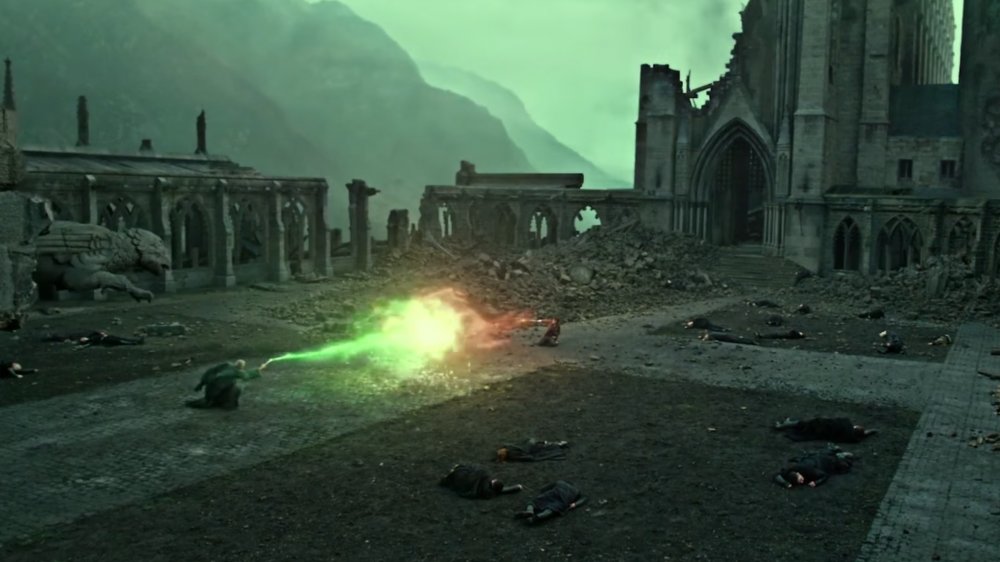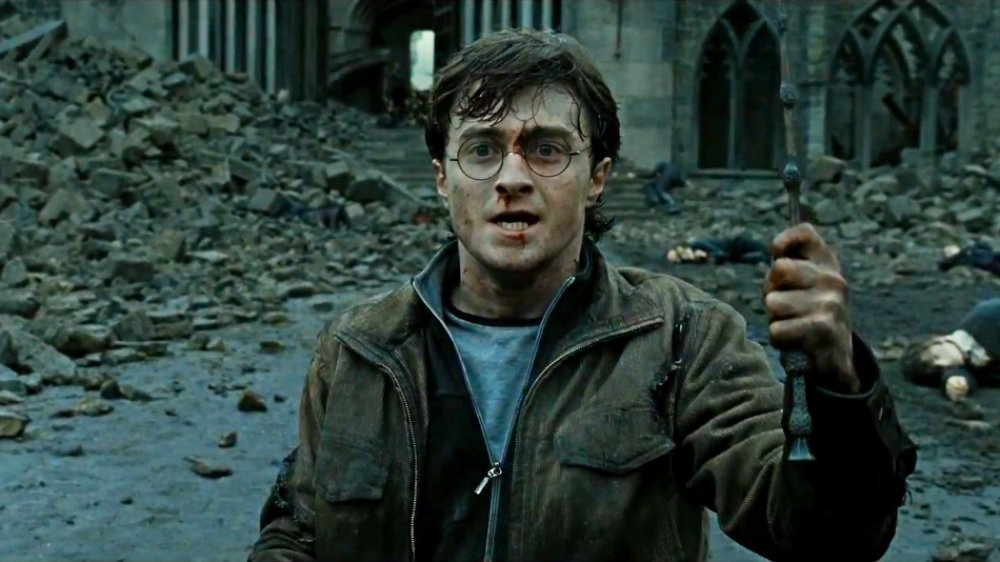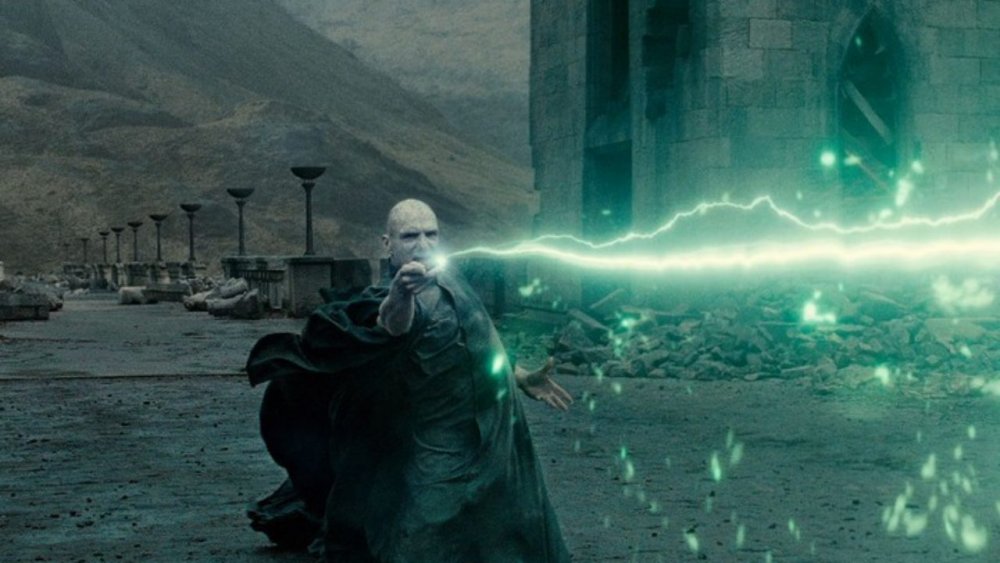The Battle Of Hogwarts Ending We Never Got To See
The grand finale of the Harry Potter film franchise could have been entirely different than the ending you remember.
Adapting a long book series — especially the Harry Potter novels, which were originally written by J.K. Rowling and span a whopping 4,224 pages — is always a challenge. When it came to the finale of Harry Potter and the Deathly Hallows Part 2, which features the knock-out, drag-down final confrontation between Harry Potter (Daniel Radcliffe), the "Boy Who Lived," and the Dark Lord Voldemort (Ralph Fiennes), there were some sizable hurdles.
The movie features a pretty visually thrilling fight sequence between Harry and Voldemort as they wage one last war against each other, but in the book, there's a lot more talking and mythology involved in — spoiler alert! — Voldemort's eventual demise at Harry's hands. This ending isn't just for book purists any more; if you've never read the Harry Potter books and have only seen the films, here's the full story of the Battle of Hogwarts ending we never got to see on the big screen.
The Battle of Hogwarts that never was
In the books, after hunting down all of Voldemort's Horcruxes — pieces of his soul that prevent him from dying — and systematically destroying them, Harry only has one step left. As the final Horcrux that Voldemort never intended to make, Harry must sacrifice himself to Voldemort directly. When he does, he reunites with Albus Dumbledore (Michael Gambon) in a sort of limbo version of the afterlife. There, Dumbledore tells him that now that the part of Harry that belonged to Voldemort is gone, he can return to the land of the living.
That sequence plays out pretty much the same way in the book that it does in the movie, but when Harry finally confronts Voldemort, the entire thing is much different. When Harry returns to Hogwarts' crowded Great Hall under his Invisibility Cloak to face off against Voldemort, he tells the Dark Lord, whom he insists on calling "Tom" (his given name), that if Voldemort could feel an ounce of remorse, there would be hope for him. Harry even explains Severus Snape's (Alan Rickman) true nature, telling Voldemort that his right-hand man was working for Dumbledore the entire time. After Harry exposes Voldemort's true cowardice and weaknesses to everyone, as well as that none of Voldemort's curses cast upon any of Harry's loved ones are binding due to the fact that Harry sacrificed himself as a mirror to his mother giving her own life to save her child, they fire their final curses.
Harry sticks with his favorite spell, the Disarming Spell, while Voldemort uses the Killing Curse. Unfortunately for Voldemort, Harry, the true master of Voldemort's purloined Elder Wand, bests his nemesis, catching the wand and watching as Voldemort is killed by his own rebounding Killing Curse.
How is the Battle of Hogwarts different in the movie, and why is it important?
In the film, Harry's entire explanation falls by the wayside, and the battle is reduced to a computer-generated fight that involves Harry and Voldemort flinging themselves from Hogwarts' highest tower for some reason. Eventually, they end up surrounded by a crowd just outside of Hogwarts, and when the two cast their final curses, the spells meet in midair before Voldemort explodes into some sort of ash upon absorbing the Killing Curse.
While this ending was a visual spectacle, it takes away some of the book's more important, salient points, both by cutting Harry's speech and in the dramatic way that Voldemort dies. By leaving Harry's speech out, viewers miss out on the full explanation of Voldemort's fatal flaws, aren't told that he has no control over the Elder Wand, and never learn one of the series' most pivotal points: That love, remorse, and forgiveness are among the most powerful forms of magic, concepts that Voldemort can never understand. Beyond that, the image of Voldemort dying just like anybody else is incredibly important. Without his Horcruxes, he ceases to be a mythological, infallible creature, a fate he always feared. Allowing audiences to see Voldemort's body in death would have made that symbolism perfectly clear.
You can always return to the original Harry Potter novels if you miss the original ending. Otherwise, you can catch the revised ending in Harry Potter and the Deathly Hallows Part 2, along with all of the other Harry Potter films, on HBO Max until August 2020.


